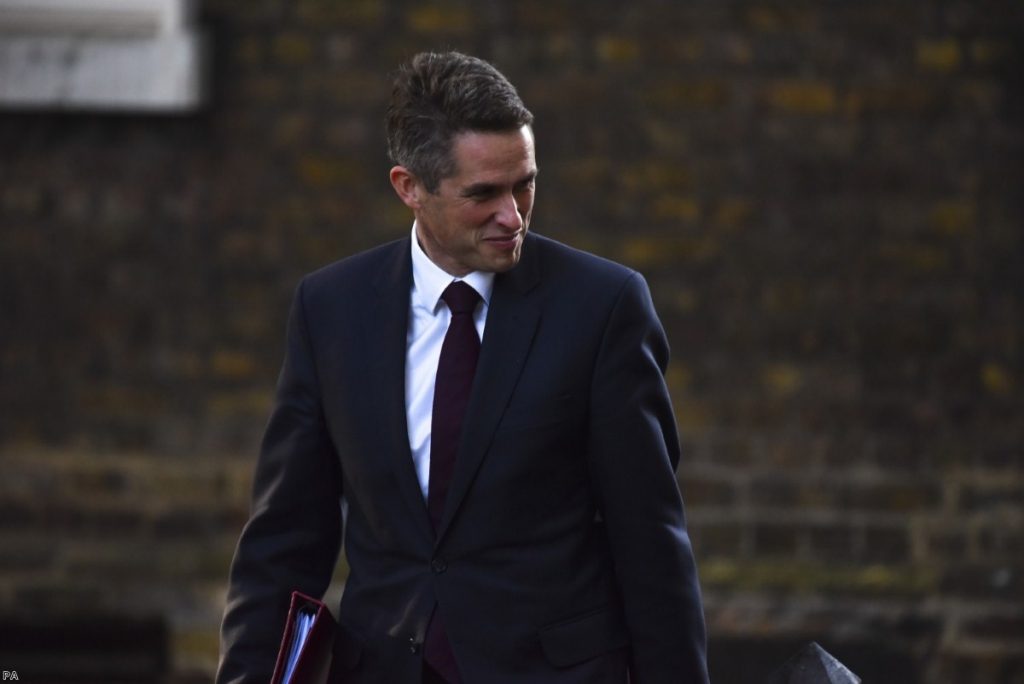After securing the keys to Number 10 unopposed just two weeks ago, Rishi Sunak made it a priority to assure the public that the Tory psychodrama was at an end.
The plan was to inspire a different kind of Conservative politics — one characterised a lot more by Tory togetherness and a lot less by blue-on-blue bickering. “Unity, experience and continuity” were openly paraded as the new government’s guiding principles, and Sunak’s cabinet was constructed in this image.
Inverting Truss’s formula for failure, a balance was struck between apportioning plum posts among loyalists and appointing “unity” picks. Extending an olive branch to his party right, prominent Trussites like James Cleverly, Therese Coffey and Kemi Badenoch all retained ministerial office.
In the end, every faction was appeased. Even single-issue rebels like Andrew Mitchell and Johnny Mercer were awarded plush government posts.


But behind the scenes, there was evidence of a different strategy being pursued.
Outward emphasis on “unity, experience and continuity” was belied by an agenda of strict party discipline behind closed doors. “Unite or die”, Sunak privately told MPs just hours after becoming leader of the party.
The appointment of five former chief whips to cabinet, not including Simon Hart as the new head of party discipline, was itself a serious statement of intent.
And first among Sunak’s parliamentary muscle was, of course, Sir Gavin Williamson.
Williamson was perhaps the most curious of Sunak’s cabinet picks. As a minister without portfolio, he was promoted without a specific brief — and his reputation notably jarred with a government focussed on “integrity, professionalism and accountability”.
Of course, Sunak is not so naive as to have been unaware of Williamson’s past in parliament. But he might have expected his backbenchers to kowtow and accept Williamson’s promotion out of deference to the new ruling regime. Indeed, after giving in on so many levels to the Trussites and the party rebels, Williamson was about establishing his own personal authority.
In this sense, the circumstances of Williamson’s downfall are incredibly instructive.
A simple explanation for Williamson’s resignation is that he had too many enemies.
Most of these were accumulated through his long tenure as an official and unofficial parliamentary wrangler. Williamson’s unique attitude to political relationships was displayed publicly when his sweary WhatsApp exchange with Wendy Morton, Truss’ chief whip, hit the pages of the Sunday Times.
The Sunday Times scoop was bolstered by the accounts of Anne Milton, Williamson’s own former deputy, and that of an anonymous civil servant who was allegedly told to “slit your throat” by the mastermind manipulator. Williamson denies the claims. Together all this was enough for Williamson to quit the government on Wednesday.
But the other person with too many enemies would appear to be Williamson’s former boss, Rishi Sunak.
Williamson’s resignation is naturally deeply embarrassing for the government, but Sunak will arguably be more concerned about the incessant briefing and manoeuvring that surrounded the whole affair.
In fact, after all of Sunak’s emphasis on party unity, it appears a new “awkward squad” of disgruntled ex-ministers is emerging. The leading light being former party chairman and Sunak-sackee Sir Jake Berry.
Berry, rather like Williamson, is a savvy political operator.
Before the ink was dry on the revelations in the Sunday Times, Berry, on cue, issued a statement saying he informed the incoming PM about the allegations against Williamson a day before he entered Number 10.
New questions were hence asked about what Sunak knew and when; from here, Gavgate snowballed into the type of scandal a minister cannot tell to “shut up and go away” (to use one of Williamson’s more infamous phrases).
But the problems run deeper than Williamson.
Berry had already marked himself out as a chief stirrer of party discontents on the controversy surrounding Suella Braverman’s reappointment as home secretary.
Indeed, not 24 hours had passed with Sunak in Number 10 before the former party chair began briefing against his own government. Berry told TalkTV that as Truss’ home secretary, Braverman committed “multiple breaches of the Ministerial code”.
This move was a clear attempt to undermine the new leader.
Berry’s interventions should dispel the notion that peace had broken out among Conservative MPs — in fact, with the much-anticipated Autumn statement coming next week, there are serious reasons for the PM to be worried.
With immediate tax rises and spending cuts set to be announced, Sunak’s party management problems may only be beginning.
The warning signs are there.
Sir Iain Duncan Smith, who helped to run Liz Truss’s campaign against Sunak in the summer, pointedly told Sky News this week that if the government “try and hammer us too hard with tax rises, they will actually drive us deeper into recession”.
He added: “There will be deep concern [in the party] if we go over the top”.
Also troubled by the potential for fiscal overcorrection, Nadine Dorries took to Twitter on Thursday over reports that Sunak intends to postpone the plan to put a cap on social care costs. “Given everything Hunt said when chair of the department of health and social care select committee, I’m very surprised”, she wrote.
Add to this growing anxiety over the future of the pension triple lock and a potential raid on people’s inheritances, and it is clear that the battle for control of the Conservative party is very much still rumbling on in the background.
Many are not yet ready to bury the hatchet on the Tory psychodrama.
So come the 17th November and the new Autumn statement, things may still get more awkward yet for Rishi Sunak.












